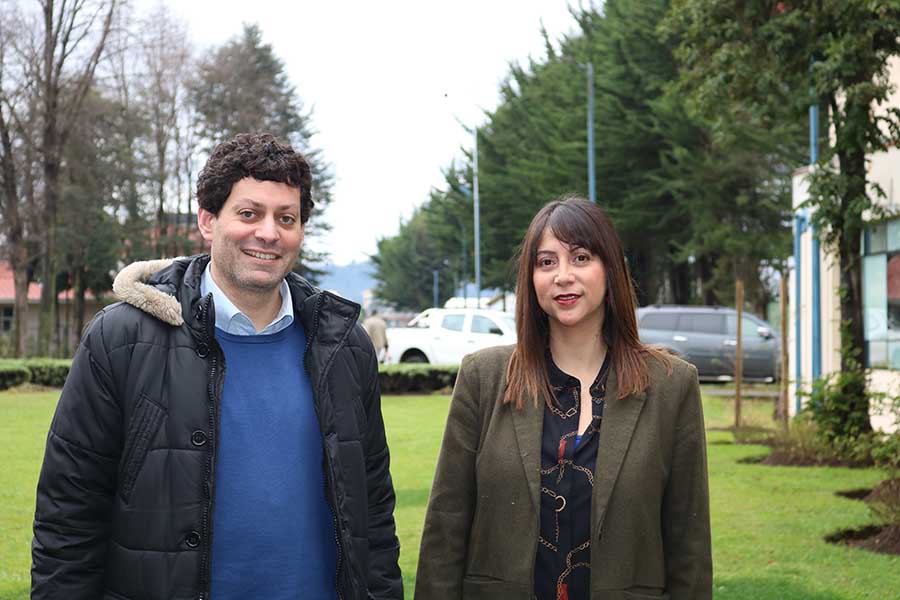|
The UFRO is leading this project that is financed by the International Development Research Centre in Canada and the TTI’s Opportunity Fund of the Think Tank Initiative. It is an interesting initiative for the analysis of the regional economic development and the cooperation networks between businesses, and four countries are part of it. |
The UFRO is leading this project that is financed by the International Development Research Centre in Canada and the TTI’s Opportunity Fund of the Think Tank Initiative. It is an interesting initiative for the analysis of the regional economic development and the cooperation networks between businesses, and four countries are part of it. Which influence does the productive structure of the territory have on regional development? Is the productive concentration or diversification of the territory relevant? What do other experiences in Latin America show us? Which are the cooperation relations between companies? These are some of the questions that the project of international cooperation, which the Universidad de La Frontera (UFRO) is leading together with three other institutions, is trying to answer through the comparative analysis of different sectors and regions in El Salvador, Paraguay, Uruguay and Chile. The study is financed by the International Development Research Centre (IDRC) in Canada and the TTI’s Opportunity Fund of the Think Tank Initiative. The idea is to establish a characterization and the mapping of the productive specializations and capabilities in the region and to disclose the elements and effects of business cooperation by analyzing a total of 1,336 companies in 26 different sectors in the 4 different countries that are part of the project. The academics who represent Chile and who are the reason the UFRO is leading this project are Dr. Paulina Sanhueza (Faculty of Law and Business) and Dr. Ignacio Rodríguez (Faculty of Education, Social Science and Humanities). They started to develop this initiative in 2016 together with three other institutions: The Center for Analysis and Dissemination of the Paraguayan Economy (CADEP), the Salvadoran Foundation for Economic and Social Development (FUSADES), and the IECON Development Corporation of the University of the Republic (Uruguay). COMPARATIVE ANALYSIS The project aims at results that broaden the empiric evidence on business cooperation networks in Latin American economies. With only few exceptions, the previous empirical studies on this issue focused on cluster cases in countries of North America and Europe. “This is why we have concentrated on an innovative methodology of analysis of social networks that use data obtained by primary sources (surveys), since most of these studies use secondary data in order to measure the impact of business cooperation. This way, our study contributes with an interesting and innovative methodology in this field,” Dr. Sanhueza explained. This project of international cooperation meets all academic expectations, in the sense that “it allows us to apply for competitive funds, to do research with international peers, create knowledge associated with the territory and to involve undergraduate students during the different phases of the project,” the academic added. CHILE In the case of Chile, the Araucania Region was the focus of this study that concentrated on the analysis of productive specializations and the level of business cooperation in the wood, cereal, food, tourism and financial intermediation sector. Dr. Ignacio Rodríguez of the Department of Social Sciences commented: “The analysis of the different networks reveals that the companies that innovate and export the most are those with the most links of cooperation with other companies within their cluster, especially in the touristic sector. Nevertheless, the size of a company or its years of existence do not allow any clear conclusions regarding their links of cooperation.” For the study, 383 companies and 85 organizations were surveyed. In this respect, Dr. Rodriguez indicated: “We were able to observe that the organizations are important when it comes to connecting with networks and creating links between the companies that are part of them.” From a comparative perspective, the countries that have been studied do not show regions with a high local entrepreneurial capacity that can be the main support of a cooperation network. In fact, according to the researchers, “the connectivity of the networks critically depends on the role of the supporting organizations.” This is why one of the components of great relevance within the project is the elaboration of productive development policy recommendations for each country, according to the analyzed cases. The detailed data of each country, sorted by region and the territorial productive specializations and business cooperation is available on the following website: desarrolloterritorial.ei.udelar.edu.uy/tti
Written by: UFRO Communications Office
|





